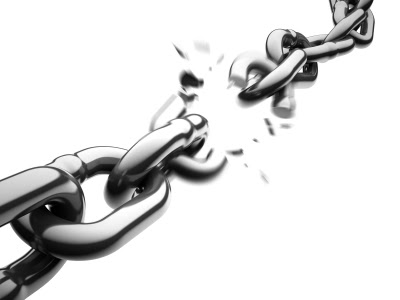Firstly, let's make it clear. When the govt raises minimum wage, what they're doing is basically forcing companies to pay ALL of their employees more. Because when you raise the rate you have to pay your entry level positions, they would be earning the same as the second tier employees. Because these second level positions usually require some additional training or skills, you have to pay them more than the bare minimum. Then to keep wages competitive, corporations have to raise the amount they pay their third tier workers as well. Etc, etc on up the chain.
Remember that as long as we're in a capitalistic society, the goal of companies is to ethically make as much money as possible. Now, as I see it, in order to be able to pay all their employees more money, there are really only a few options they have:
- Absorb the extra costs and take a cut in profits
- Some would say this is acceptable considering how outrageously large the profits are for some of these corporations. Problem is, while these multi-billion dollar profit oil companies could probably absorb the increase, the vast majority of businesses in America are small-medium businesses.
- [Admittedly, small businesses (<$125,000 revenue) get some tax cuts to help with the additional costs. However, I'm dubious if the cuts cover the entire cost of paying higher wages, so they still have to come up with more money.]
- How would a non-profit deal with this?
- Also ask yourself, how do you think the stock of a publicly traded company would react if the company suddenly announces a cut in profits?
- Increase prices
- If you don't take the money from profits, then you have to get more money from somewhere. So many companies will resort to increasing the costs of their goods and services. By increasing costs (and hoping their demand doesn't decline) they will look to increase revenue and hopefully be able to handle the extra expense of paying their workers more without reducing profits.
- Now to me, the widespread increase in costs is basically artificial inflation. And inflation was the reason why people were shouting for the increase in minimum wage in the first place! So by increasing the minimum wage, we've indirectly increased the cost of living and artificially accelerated the rate of inflation. So in another 5-10 years, guess what they say is needed again?
- [I'm picturing a dog chasing its tail right now.]
- Lay off employees
- If you don't take the money from profits and you don't increase prices to increase revenue, then you don't have enough money to spread out across the employees. So something has got to give. The next relief valve is to reduce the number of employees. So it's not surprising to me that we're now hearing about numerous companies laying off batches of workers.
- Move overseas
- Say you don't want to lose profits, price-tolerance says you can't raise prices, and you can't afford to reduce supply by eliminating employees. Now say you're considering updating or expanding production. What incintive is there to open a new factory in the US? Not much other than being closer/easier to manage and perhaps patriotism. Looking that the possible advantages:
- Lower cost of materials
- Lower cost of labor
- Minimal environmental regulations
- Less red tape and paperwork requirements
- Lower taxes (a whole other article)
- Add into that the fact that the US has free trade agreements with numerous countries and I'm surprised there are still even factories left in the US!
Now I'm not an economist. I have only looked at what seems to me to be logical cause-and-effect. And what we're observing in the economy lately seems to be support me. Please someone tell me where I'm wrong, because both Democrats are talking about raising it to a "living wage" which could be $10 or $11 /hour or more!

No comments :
Post a Comment